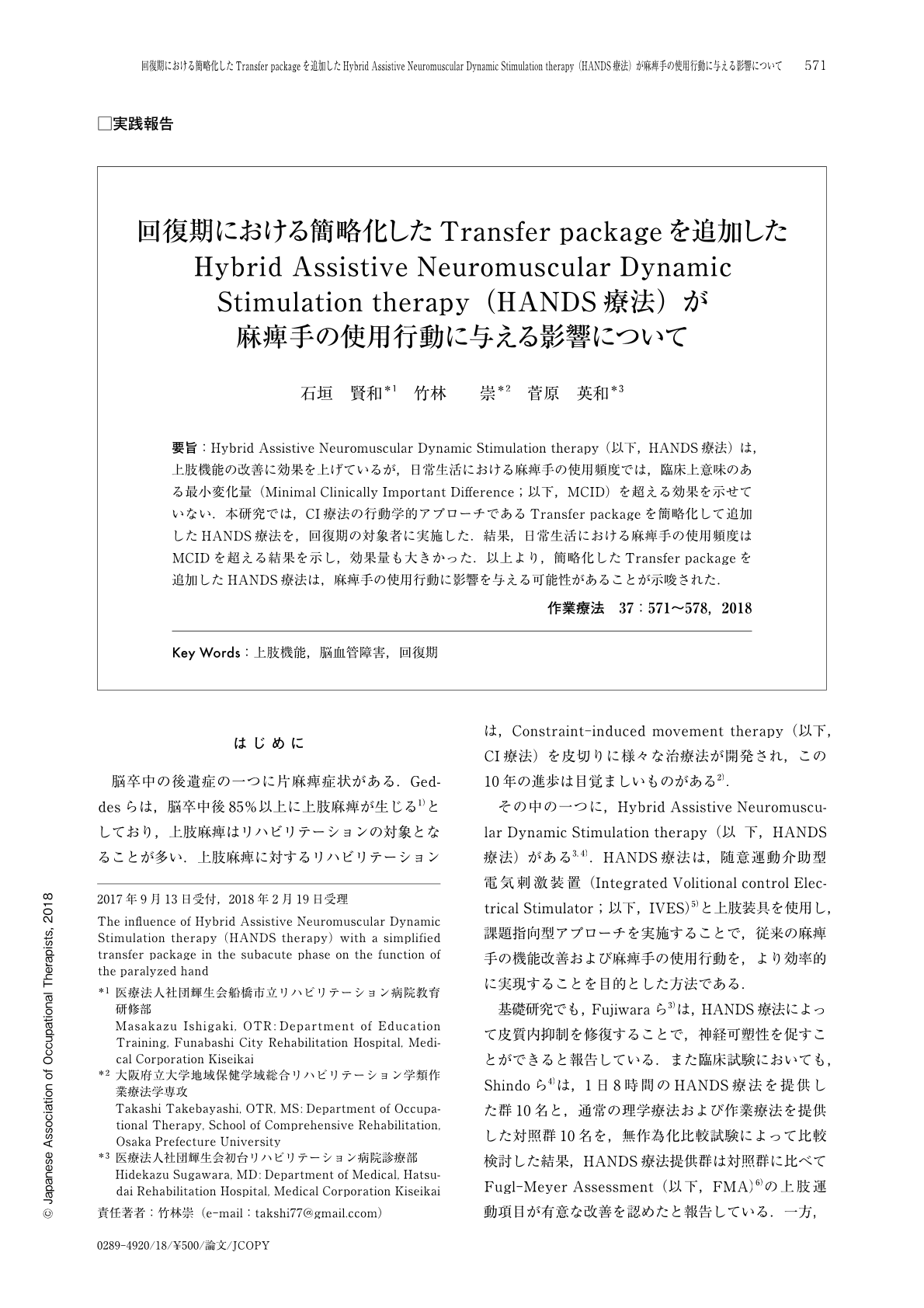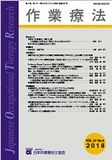Japanese
English
- 販売していません
- Abstract 文献概要
- 1ページ目 Look Inside
- 参考文献 Reference
- サイト内被引用 Cited by
要旨:Hybrid Assistive Neuromuscular Dynamic Stimulation therapy(以下,HANDS療法)は,上肢機能の改善に効果を上げているが,日常生活における麻痺手の使用頻度では,臨床上意味のある最小変化量(Minimal Clinically Important Difference;以下,MCID)を超える効果を示せていない.本研究では,CI療法の行動学的アプローチであるTransfer packageを簡略化して追加したHANDS療法を,回復期の対象者に実施した.結果,日常生活における麻痺手の使用頻度はMCIDを超える結果を示し,効果量も大きかった.以上より,簡略化したTransfer packageを追加したHANDS療法は,麻痺手の使用行動に影響を与える可能性があることが示唆された.
Previous research has indicated the effectiveness of Hybrid Assistive Neuromuscular Dynamic Stimulation therapy (HANDS therapy) in improving upper limb function, but the frequency of use of the paralyzed hand in daily life has not improved beyond the Minimal Clinically Important Difference (MCID). To solve this problem, we simplified the behavioral approach (Transfer package) in CI therapy with HANDS therapy for subacute stroke patients. As a result, frequency of use of the paralyzed hands in daily life improved beyond the MCID to great effect. These findings suggest that HANDS therapy using simplified Transfer package might affect the function of paralyzed hand use in daily life.

Copyright © 2018, Japanese Association of Occupational Therapists. All rights reserved.


